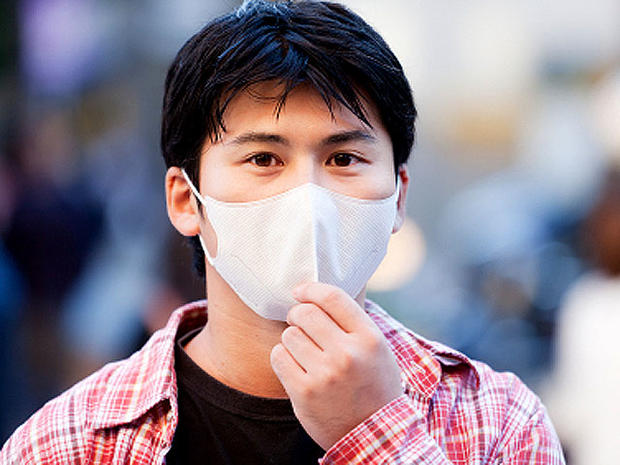Gov't wants bird flu research kept under wraps, away from terrorists
(CBS/AP) Government officials want a group of bird flu researchers to keep some of their findings out of medical journals - so they don't get into the hands of terrorists.
PICTURES: Bird flu self-defense: 7 key questions answered
The government-funded studies were aimed to find out how deadly H5N1 bird flu could mutate to become a bigger threat to humans. Two labs were successful in creating bird flu strains that could easily spread to people. That's when the government took the unprecedented step to ask the scientists to keep the details under wraps.
"It wasn't an easy decision," said Dr. Anthony Fauci, infectious diseases chief at the government's National Institutes of Health.
The research showed that it was easier than scientists expected for bird flu to evolve in a way that lets it spread between at least some mammals. The virus stores are being kept in high-security labs as researchers at the Erasmus University Medical Center in the Netherlands and the University of Wisconsin-Madison prepare to publish their findings in leading scientific journals to share their findings with colleagues so they could build it on it with more studies.
But bioterrorism advisers to the government recommended that the journals Science and Nature publish only the general findings, not the full blueprint for these man-made strains. The journals and researchers are mulling their next steps.
Science editor-in-chief Dr. Bruce Alberts wants the government to set up a system where certain international researchers - like those in bird flu-prone countries like China and Indonesia - will be able to get the full genetic recipe for these lab-bred strains.
Alberts believed this to be the first time the government requested secrecy from legitimate public health research.
"It's a precedent-setting moment, and we need to be careful about the precedent we set," Alberts told the New York Times.
NIH's Fauci said the system should be working very soon, so that international public health officials, scientists and drug companies with "a legitimate need to know can have access to that information."
Nature's editor-in-chief, Dr. Philip Campbell, also called the recommendations unprecedented.
"It is essential for public health that the full details of any scientific analysis of flu viruses be available to researchers," he said.
Avian flu has caused outbreaks in wild birds and poultry in a number of countries around the world. But it only occasionally infects people who have close contact with infected poultry. It's known to have sickened nearly 600 people over the past decade and it's deadly, killing about 60 percent of the time.
The threat is especially large in and around Southeast Asia. The New York Times reported Wednesday that Hong Kong health workers began slaughtering more than 17,000 chickens in a poultry market after one was found to be infected with bird flu. Hong Kong's health officials raised the territory's bird flu alert to "serious," and closed the market.
"There is clearly a public health threat that has been lingering and smoldering with regard to H5N1 for several years," said Fauci. He said that a naturally occurring flu outbreak is much more likely than any man-made one.
"Nature is the worst bioterrorist," he said. "We know that through history."
Dutch lead researcher Dr. Ron Fouchier argued his discovery showed what mutations to watch for so "we can then stop the outbreak before it is too late."
Erasmus Medical Center said its researchers were complying with the U.S. request but added in a statement, "Academic and press freedom will be at stake as a result of the recommendation. This has never happened before."
The University of Wisconsin said reseacher Yoshihiro Kawaoka's team likewise would comply.
"While recognizing the potential for misuse of scientific discovery, the research described by UW-Madison researchers is essential for public health, global influenza surveillance activities and the development of vaccines and drugs to counter any potential pandemic," said a university statement.
Some experts called the government's action a good middle-ground.
"Influenza is certainly a unique beast in its capability to spread," said Dr. D.A. Henderson of the Center for Biosecurity of the University of Pittsburgh Medical Center., who played a key role in the eradication smallpox. "The question is how can we assure experiments like this really aren't done in ways that the organism is apt to escape."
The CDC has more on bird flu.

